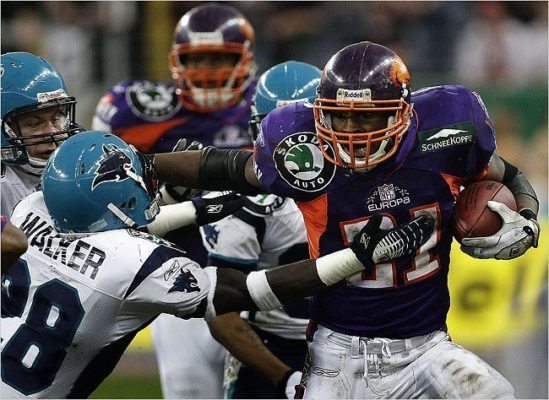The clue is, of course, in the name: American football’s spiritual homeland is the US, and that’s unlikely to ever change. A brief look down the Sugarhouse sportsbook is all a fan needs to do to authenticate just how popular and widespread this game is in the country – and with viewing figures high across the NFL, there’s no shortage of people who might want to watch these games in action.
But the popularity of NFL is now going global, and it is slowly but surely managing to increase its presence in places like Europe. This article will explore how the role of the NFL is changing, and what might be behind the rise in its popularity in locations such as Europe.
Changing perceptions
To begin with, it’s definitely the case that association football – or soccer – was perceived by many Europeans to be vastly different not just in terms of rules but also in terms of spirit and culture. It’s certainly the case that the rules and gameplay are very different, even down to the shape of the ball. But what many soccer fans have begun to realize is that the core components of being a football fan – pride in the team, excitement of a match, and so on – are the same whether the football being played is association or American.
Governance organizations
A slightly less glamorous reason why NFL is beginning to become more popular in Europe is because the infrastructure is in place in several European countries to look after the sport and ensure it can be played by people, either expats or locals, in a given foreign nation. Germany, for example, is one such European country – and it is believed that there are 80 nations around the world which have a governing body for American football on their side.
In Europe, this has had a number of effects. It has meant that NFL has become a more legitimate sport in the eyes of many, and one that is properly regulated and ruled. It has also increased the understanding of the rules of the game, which in turn makes it easier for people to either watch, play or bet on it.
American migration
Another reason why the enjoyment of NFL is on the rise in Europe is due to a shift in populations. The migration corridor between the US and Europe has always been busy, and historically this was particularly true for people traveling from Europe to the US. But it’s also worth noting that the corridor is busy the other way around: almost nine million Americans are believed to live abroad, with over 1.5 million of those in Europe.
As a result, American cultural pursuits and other pastimes are now spreading around the world. With many Americans coming to work in major European cities such as London, Paris and Frankfurt, the rise in the popularity of American football is to be expected. In a particularly pleasant aspect of international bonding between different nationalities, it’s now not uncommon for workmates, flatmates or similar to head out to a bar together to watch a game of American football.
Games held abroad
And no consideration of how the NFL is popular abroad would be complete without looking at the presence of games held especially in European countries. Across the course of 2016, for example, there were three NFL games scheduled to occur in London – and with two of those billed to use the country’s most famous stadium, Wembley, as a venue, it’s easy to see why hype was high.
Given the dominance of American culture more generally in Europe and elsewhere, it’s no surprise that when a key American cultural export such as the NFL comes to town it is gratefully received. With American television and film output already trusted so much by many Europeans, sport is the natural next step. The shared language between Britain in particular and the US makes the UK a prime destination for NFL on tour, as it means that commentary, programs and even in-stadium conversation can all be shared.
NFL is fast becoming a highly desirable sporting culture to be a part of for many Europeans. While it’s certainly unlikely to ever usurp association football as the sport of choice here, it’s developing a real niche for itself thanks to everything from the presence of NFL games held abroad to the impact of American migration and good international rules and governance.

